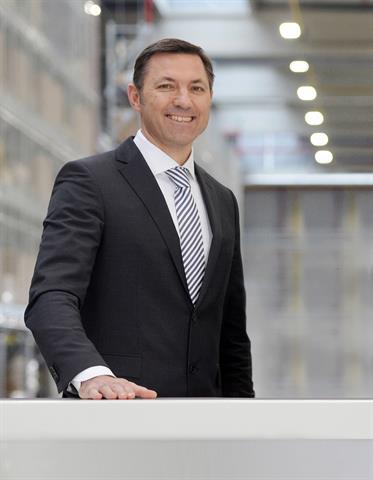 Andreas Krinninger |
Forkliftaction News continues the new series of discussions with industry leaders about the state of the industry. This week, we hear from Andreas Krinninger, chairman of the board of management of Linde Material Handling.FLA: What are the most significant changes in the materials handling sector that you are seeing at the moment?Krinninger: The major trends in intralogistics, irrespective of innovation cycles, are an ever more digitised and networked world. As is the case in so many industries, logistics processes, and thus the flow of materials, are increasingly being directed digitally. As a result, industrial trucks are becoming a part of the digital industry. Whether with universally electronically controlled trucks, the innovative sensor technology found, for example, in the Linde Safety Pilot, the connect: fleet management solution or other digital solutions, Linde Material Handling creates additional value for its customers by utilising digital technologies to optimise materials handling processes. A further trend relates to increasing differentiation and diversification: the demand for a wider range of variants, options and individually manufactured products is rising. At the same time, the rise of e-commerce has resulted in smaller lot sizes and, in some cases, fundamental changes to the requirements for order picking and the movement of goods. For this reason, customers benefit from the huge variety of customised solutions and product variants which have been a trademark of Linde Material Handling for a long time now.
FLA: We've seen some major forklift manufacturers moving into logistics through acquisitions. What is your approach to expanding your market?Krinninger: By acquiring Dematic, a specialist for automation and supply chain optimisation, the KION Group has become a different and more powerful group. We can now offer our customers around the world everything they need for their entire intralogistics - from basic hand pallet trucks, for example, for small retail stores, to the most complex automated materials handling solutions, for example, for high turn over volume, large SKU warehouse operations - underpinned by what is probably the most extensive sales and service network in the industry worldwide. By offering a comprehensive portfolio from a single group, we are perfectly positioned for helping our customers to generate value with ever greater responsiveness, safety, quality and efficiency.
FLA: Some manufacturers are reducing their production operations in their traditional bases and moving to lower-cost markets. What are your plans in this regard?Krinninger: Responsiveness, customisation and reliability is a key value proposition to our customers. Therefore, we build our industrial trucks close to the markets in which they will be sold. To this end, production facilities worldwide are being efficiently integrated - harnessing economies of scale and ensuring a high level of capacity utilisation. A program of capital expenditure is aimed not only at upgrading existing plants but also at expanding factories in fast-growing markets.
FLA: There's been some consolidation of the dealer market, especially in the USA. What are your predictions for future movements in dealerships?Krinninger: As an ongoing trend, dealerships in the US are consolidating their activities in an effort to be more efficient in a few areas rather than spreading their efforts across too many. As an OEM, we continue to monitor this trend in our dealer network to ensure we're operating at maximum levels of customer responsiveness and are able to fully support the dealerships.
FLA: With the rapid changes in technology, what advice do you have for materials handling equipment buyers? How can they make the most of the technology without replacing their existing equipment and incurring further capital costs?Krinninger: First of all, logistics managers always can rely on getting the latest technology when buying a Linde Material Handling solution. So even when changes in technology occur, the products still offer high productivity and reliability. In addition, most of the industrial truck operating companies are replacing their fleets step by step. That is why they have the chance to invest in new products with every new order. A good practice for fleet operators to make sure that they always use the latest technology is to lease trucks. In this way, forklift and warehouse trucks will automatically be replaced every four to five years and fleet operators can be assured that they use the latest technology for their internal material flows. Last but not least, it is highly recommended for those interested in making a purchase to obtain professional advice from the Linde Material Handling network and benefit from their extensive know-how and proper use cases.